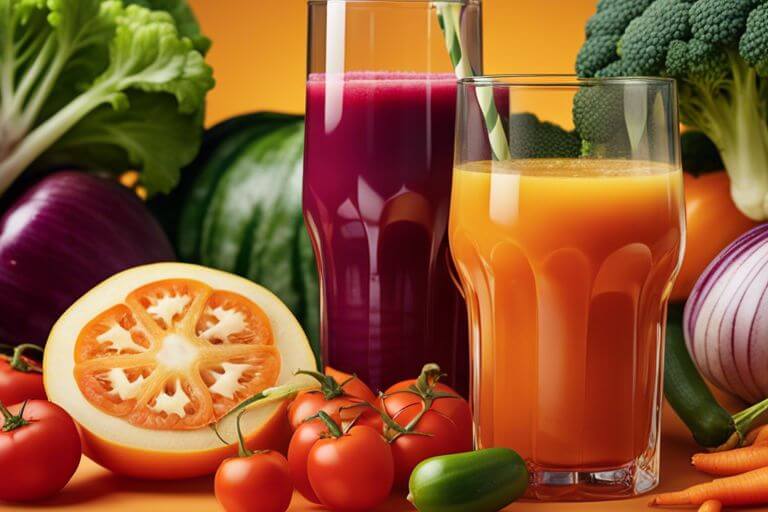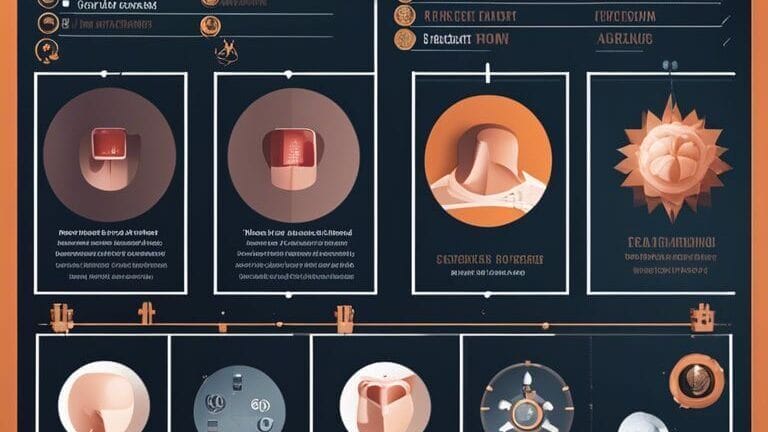Juice vs. Whole: The Nutritional Showdown Between Juicing and Eating Vegetables
Over recent years, the debate over whether juicing or consuming whole vegetables is superior for overall health has intensified.
Health-conscious individuals are increasingly weighing the nutritional benefits and drawbacks of each method in their quest for a more balanced and nourishing diet.
While juicing offers a convenient way to pack a variety of vitamins and minerals into a single glass, it also strips away the fiber content that is crucial for digestive health.
On the other hand, eating whole vegetables provides the fiber and nutrient-rich benefits in their natural form, but may require more time and effort in meal preparation.
In this post, we will explore the nutritional differences between juicing and eating vegetables, aiming to help readers make informed decisions about the best approach for meeting their dietary needs.
Understanding Juicing
Process of Juicing
For health-conscious individuals seeking to boost their nutrient intake, juicing has emerged as a popular choice.
The process of juicing involves extracting the liquid from fruits and vegetables, discarding the pulp and fiber content. This results in a concentrated dose of vitamins, minerals, and antioxidants in a more easily digestible form.
Nutritional Profile of Juice
To compare the nutritional benefits of juicing versus consuming whole vegetables, it is important to consider the impact of the juicing process on the overall nutrient content.
While juice retains many important vitamins and minerals, it often lacks the fiber found in whole vegetables, which plays a crucial role in digestion and maintaining a healthy gut microbiome.
Any health-conscious individual considering a juicing regimen should be aware of the potential drawbacks, such as a higher sugar content in fruit juices and the loss of fiber during the juicing process.
However, juicing can offer a convenient way to increase intake of important nutrients, especially for those who struggle to consume whole vegetables in their diet.
Understanding the nutritional profile of juice is key to making an informed decision about incorporating it into your diet.
While juice can provide a concentrated dose of vitamins and minerals, it is important to balance this with whole food consumption to ensure a well-rounded intake of nutrients.
The Case for Whole Vegetables
Nutritional Integrity of Whole Vegetables
Integrity plays a vital role in the nutritional content of vegetables.
While juicing can provide a quick and convenient way to consume a variety of vegetables, the process of extracting juice can also lead to the loss of certain vitamins and minerals.
Eating whole vegetables, on the other hand, ensures that the nutritional integrity of the produce remains intact, allowing for maximum absorption of vital nutrients.
The Fiber Factor
To fiber is an often overlooked component of vegetables that plays a crucial role in digestive health and overall well-being.
When vegetables are juiced, the fiber content is significantly reduced, potentially leading to imbalanced blood sugar levels and digestive issues.
Consuming whole vegetables ensures that the fiber content remains intact, promoting satiety and a healthy digestive system.
Comparative Analysis
Vitamin and Mineral Retention
The process of juicing vegetables can lead to a significant loss of crucial nutrients compared to consuming whole vegetables.
While juicing can provide a concentrated source of vitamins and minerals, the extraction process can degrade sensitive nutrients such as vitamin C and folate.
Additionally, fiber content is often reduced during juicing, impacting nutrient absorption and digestion.
Digestion and Absorption
Understanding the role of fiber in digestion is crucial when comparing juicing to eating whole vegetables.
The fiber present in whole vegetables plays a key role in promoting healthy digestion and maintaining gut health.
Juicing removes a significant portion of fiber, potentially leading to faster digestion and absorption of sugars present in the juice, which may result in spikes in blood sugar levels. This could be a concern for individuals trying to manage their blood sugar levels.
Pros and Cons
Benefits of Juicing
Keep in mind that juicing can be a convenient way to increase your daily fruit and vegetable intake. It’s an efficient method for getting a concentrated dose of necessary nutrients, vitamins, and minerals in a more digestible form.
On the other hand, whole vegetables offer the added advantage of containing dietary fiber, which is crucial for digestion and can help promote a feeling of fullness.
While juicing can provide a quick nutrient boost, consuming whole vegetables ensures you get all the beneficial components nature intended.
Making the Right Choice
Personal Health Considerations
Now, when deciding between juicing and eating whole vegetables, it’s vital to consider your personal health needs.
One key factor to contemplate is the impact of each method on your daily nutrient intake.
While juicing can provide a concentrated dose of vitamins and minerals, it may also strip away vital fiber found in whole vegetables.
For individuals looking to boost their mineral and vitamin intake efficiently, juicing can be a beneficial option.
However, for those seeking to maintain optimal fiber levels for digestive health, consuming whole vegetables may be the better choice.
Integrating Juicing and Whole Vegetables into Your Diet
An important approach to consider is the integration of both juicing and whole vegetables into your diet.
For instance, starting your day with a fresh juice packed with nutrients can kickstart your morning on a healthy note.
Pairing this with a balanced meal that includes whole vegetables later in the day can ensure a well-rounded intake of vital nutrients.
To wrap up
In the nutritional showdown between juicing and eating vegetables, it’s clear that both methods have their own set of benefits and potential drawbacks.
Juicing can provide a concentrated dose of nutrients in an easily digestible form. This makes it a convenient option for those looking to boost their intake of vitamins and minerals. However, the process of juicing can strip away important fiber and lead to a higher sugar content in the final product.
On the other hand, consuming whole vegetables allows for a more inclusive nutrient profile, including crucial fiber for digestive health.
Health-conscious individuals should consider their individual dietary needs and preferences when deciding between juicing and eating vegetables. Perhaps a combination of both methods can optimize their nutritional intake.




